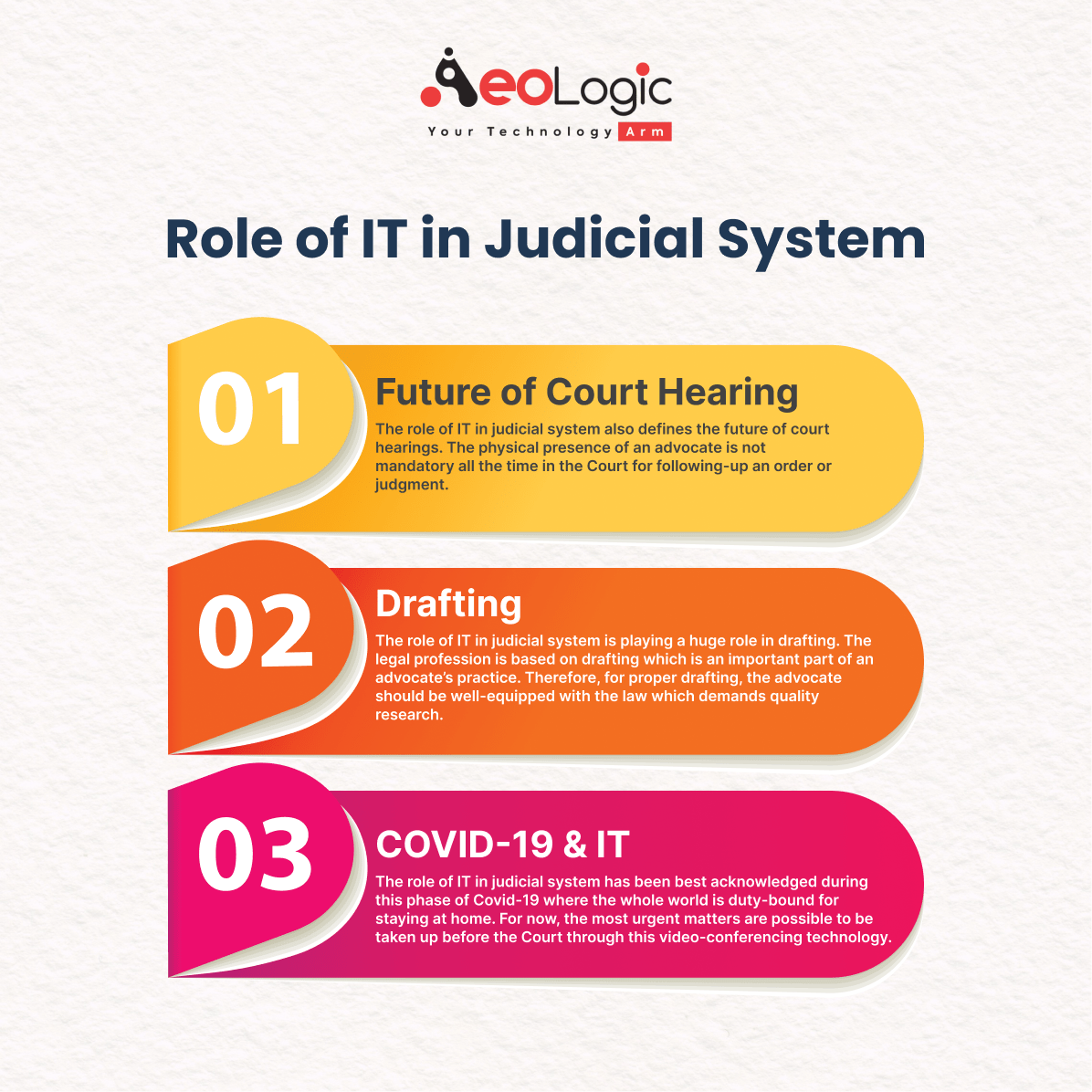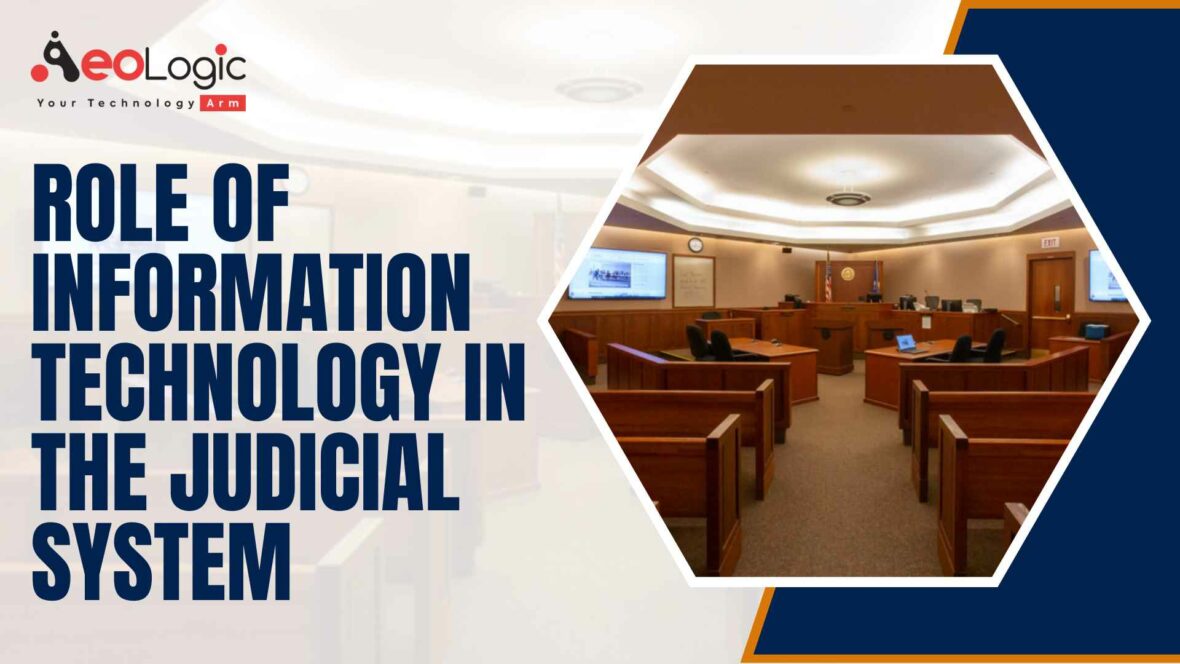Once upon a time, we were taught during our school days that the importance of life for humans to survive are food, clothing, and shelter. However, with the changing time, I believe this list is to be updated. Today, the necessities are clothing, food, shelter, and Information Technology. It is becoming an inseparable part of our life. Furthermore, it is the most striking factor in transforming the world in our era. It has profoundly changed the way huge parts of humanity communicate and interact. Therefore, we will be discussing the role of IT in judicial system.
The rapid development in the technological field is making the world a better and fast-moving place. The growth is because of the increase in applications of computers in almost every sector. Information technology involves a combination of hardware and software. It is to execute the significant functions people require and use every day. It is referring to the creation, gathering, storage, processing, presentation, and dissemination of information. And also the processes and devices that are enabling all this to be done. The role of IT is affecting us as an individual as well as a society.

Also read: The Role of Information Technology in Modernising the Courts
Role of IT in Judicial System
Information technology is a broad term that covers all the technologies and services concerned in computing, data management, telecommunication provisions, and the internet. All these technologies help in dealing with the transmission and reception of information of some or the other kind. IT penetrates all aspects of life, like delivering newer, better and faster ways for people to interact with each other, network with each other, seek help from one another. As well as gaining access to different information and learn newer things. It is present everywhere in this modern-day and age but Information Technology has enormous economic importance as well. The technology industry accounts for quite a considerable portion of economic activities that are taking place on a global scale as economies, employment and the personal lives of people are becoming more and more connected, automated, and digitized.

Future of Court Hearing
The role of IT in judicial system also defines the future of court hearings. The physical presence of an advocate is not mandatory all the time in the Court for following-up an order or judgment. It can be easily downloaded from the verified Court application. Therefore, unnecessary time invested on such time-consuming activities could be prevented. Apart from the advocate, it is also possible for the Judge to be equipped with relevant and necessary information. It is to take suitable action, for moving a case forward, or assigning it, list it for trial, or take whatever action is appropriate.
Drafting
The role of IT in judicial system is playing a huge role in drafting. The legal profession is based on drafting which is an important part of an advocate’s practice. Therefore, for proper drafting, the advocate should be well-equipped with the law which demands quality research. There was a time when advocates used to handwrite pages of suit, referring various law books to research. As well as daily overloading themselves with various paper documents and case files. Nowadays, with the role of IT in judicial system, all these activities can be performed on a portable electronic device such as a laptop.
COVID-19 & IT
The role of IT in judicial system has been best acknowledged during this phase of Covid-19 where the whole world is duty-bound for staying at home. For now, the most urgent matters are possible to be taken up before the Court through this video-conferencing technology. As hearings of paramount importance would be performed in the judicial system through video conferencing, the efficiency of such video-conferencing technology is also depending upon the level of security involved as crucial information is to be shared.
Also read: Importance of Information Technology in Today’s World
Conclusion
In India, the procedure of Courts is considered to be time-consuming which is true because our Courts follow the ‘Procedure established by Law’ structure. Furthermore, following due procedures may tend to delay the proceedings. The role of IT in judicial system can play a crucial role in alleviating this delay by curbing the time spent in the procedure.
Connect with us to know more about the role of IT in judicial system.






